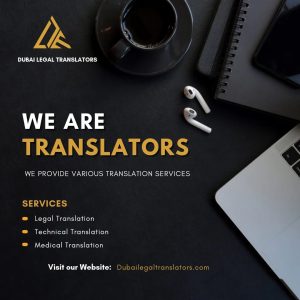Legal Translation and the Healthcare Industry: A Vital Partnership
The healthcare industry is one of the most regulated sectors globally, with strict laws and standards governing everything from patient care to medical research. As the industry becomes increasingly globalized, the need for accurate legal translation has grown. Legal translation plays a crucial role in ensuring that healthcare providers, researchers, and companies comply with local laws, protect patient rights, and facilitate international collaboration.
Ensuring Compliance with Healthcare Regulations
Healthcare regulations vary widely from country to country, covering areas such as patient privacy, medical device approval, pharmaceutical licensing, and clinical trials. For healthcare organizations operating internationally, compliance with these regulations is essential to avoid legal penalties and ensure the safety and well-being of patients.
Legal translation is critical in this context, as it ensures that regulatory documents are accurately translated and reflect the legal requirements of the target jurisdiction. This includes translating licenses, regulatory submissions, compliance guidelines, and legal notices. Any errors in translation could lead to non-compliance, resulting in fines, legal disputes, or even the withdrawal of products from the market.
For example, pharmaceutical companies must submit detailed documentation to regulatory authorities when seeking approval for new drugs. These documents often include complex legal and scientific language that must be translated with precision. A mistranslation could result in delays in the approval process or even the rejection of the application.
Protecting Patient Rights and Privacy
Patient rights and privacy are fundamental principles in healthcare, enshrined in laws such as the Health Insurance Portability and Accountability Act (HIPAA) in the United States and the General Data Protection Regulation (GDPR) in the European Union. Healthcare providers must ensure that they comply with these laws, particularly when dealing with patients from different linguistic backgrounds.

Legal translation plays a key role in protecting patient rights by providing accurate translations of consent forms, privacy policies, and patient information. These documents must be clear and understandable to patients, enabling them to make informed decisions about their care and understand their rights.
For instance, when a patient participates in a clinical trial, they must sign an informed consent form that explains the purpose of the trial, the potential risks and benefits, and their rights as a participant. Legal translation ensures that this form is accurately translated into the patient’s native language, so they fully understand what they are agreeing to.
Facilitating International Collaboration in Medical Research
Medical research is increasingly conducted on a global scale, with researchers from different countries collaborating on studies, clinical trials, and innovations. Legal translation is essential to facilitate this collaboration by ensuring that all legal documents, such as research agreements, ethics approvals, and patent applications, are accurately translated.
For example, when a multinational team of researchers conducts a clinical trial, they must obtain approval from ethics committees in each country where the trial will take place. This requires translating the research protocol, consent forms, and other legal documents into the local languages. Legal translation ensures that these documents meet the ethical and legal standards of each jurisdiction, enabling the trial to proceed smoothly.
Moreover, legal translation is crucial in the patenting process for new medical inventions. Patent applications must be translated into the languages of the countries where the patent is sought, ensuring that the invention is properly protected across different jurisdictions. Any errors in translation could lead to the rejection of the patent application or the weakening of the patent’s legal protection.
Challenges in Legal Translation for the Healthcare Industry
One of the challenges in legal translation for the healthcare industry is the need for specialized knowledge. Healthcare legal documents often contain a mix of legal, medical, and scientific terminology, making them particularly complex to translate. Legal translators working in this field must have expertise not only in legal translation but also in medical and scientific language.
Additionally, legal translators must stay informed about the constantly evolving regulatory landscape in the healthcare industry. New laws and regulations are regularly introduced, and existing ones are updated, requiring translators to continuously update their knowledge to provide accurate and compliant translations.
Conclusion
Legal translation is a vital partnership in the healthcare industry, ensuring compliance with regulations, protecting patient rights, and facilitating international collaboration. As the industry continues to globalize, the demand for accurate and specialized legal translation services will only increase. By working with professional legal translators, healthcare organizations can navigate the complex regulatory environment, protect their patients, and advance medical innovation on a global scale.
